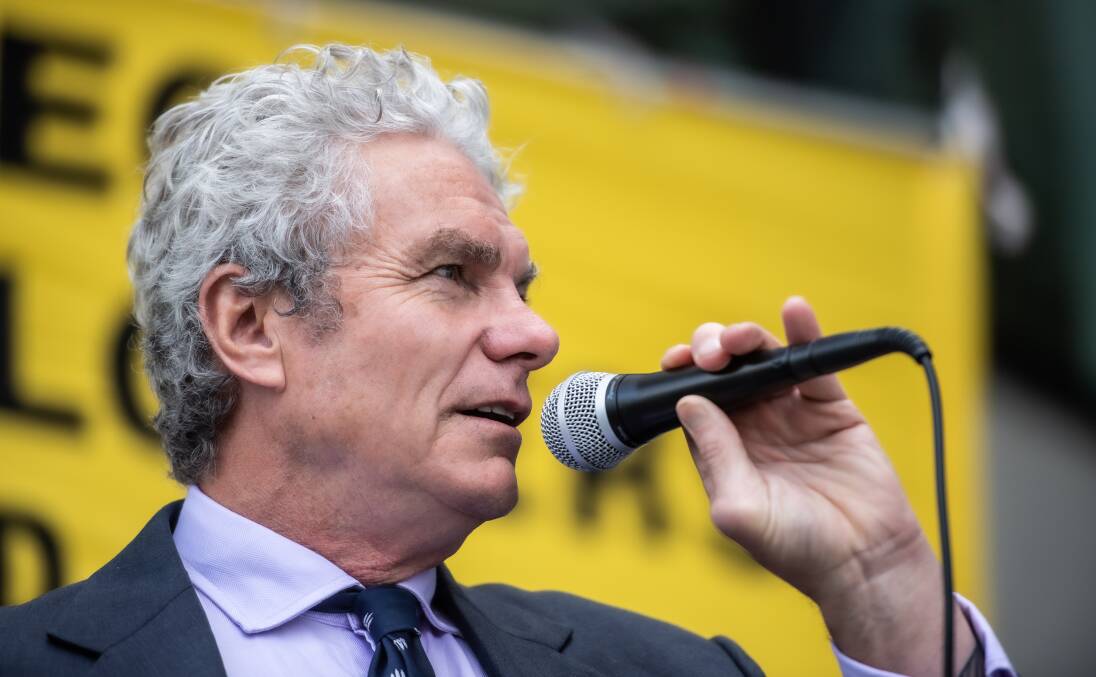
A whistleblower advocate has slammed the prosecution of a former military lawyer, saying the man will have spent more than five years facing "punishment by process" by the time he stands trial for leaking documents that exposed alleged war crimes.
The long-running case of David William McBride was finally listed for trial on Thursday, when ACT Supreme Court registrar Jayne Reece set it down for three weeks in November.
McBride, a former Australian Army lawyer, was arrested at Sydney Airport in September 2018.
He was subsequently charged with theft of Commonwealth property, unauthorised disclosure of information and three breaches of the Defence Act.
The charges were laid after McBride provided journalists with classified documents, which formed the basis of an ABC series that revealed Australian soldiers had allegedly killed unarmed civilians in Afghanistan.
Major General Paul Brereton, who led an inquiry into the allegations, ultimately found "credible evidence" implicating 25 current or former Australian Defence Force personnel in 39 allegedly unlawful killings.

One of them, former Special Air Service soldier Oliver Jordan Schulz, recently became the first Australian charged under domestic law with the war crime of murder.
Throughout the various investigations with links to McBride's disclosures, his case has been bogged down by a series of delays.
While McBride admits he leaked the material that is the subject of the charges, he had hoped to rely on a public interest immunity defence.
But his plans to seek protection under the Public Interest Disclosure Act were scuppered last October, when the Commonwealth moved to suppress the evidence of two experts on the grounds their testimony would prejudice national security.
Believing his chances of success were low without the evidence of those people, McBride's legal team withdrew the application for immunity.

Having maintained his not guilty pleas, McBride's fate will now be decided by a jury.
On Thursday morning, Ms Reece listed his trial, which is set to hear from up to 22 witnesses, to commence on November 6.
Later in the day, she indicated the start date would be pushed back a week.
The court had initially intended to list the trial on Tuesday, when a protester in the public gallery told Chief Justice Lucy McCallum that McBride's case was "a travesty" and it "should not be proceeding".
The protester's thoughts were echoed on Thursday by Human Rights Law Centre senior lawyer Kieran Pender, who said whistleblowers should be protected, not prosecuted.
"With a trial date now set for late 2023, McBride will have spent more than five years facing punishment by process," Mr Pender said.
"This case should never have commenced, but it is not too late for the Attorney-General, Mark Dreyfus KC, to end it.
"Rather than prosecuting whistleblowers, the Australian government should get on with fixing whistleblowing law and ensuring accountability for Australia's wrongdoing in Afghanistan."
While Mr Dreyfus ordered the termination of whistleblower Bernard Collaery's case last year, he has resisted public pressure to do the same with the matter of McBride.
He has also declined to intervene in the ongoing case of Richard Boyle, who exposed the Australian Taxation Office's introduction of harsher debt collection tactics.







